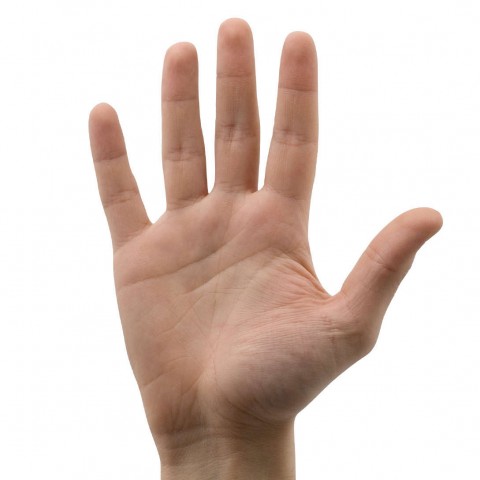
Greeks are very passionate and expressive in verbal, as well as non-verbal, communication. Therefore, body language in Greek culture is taken quite seriously. You should expect a wide range of gestures to be used during communication. Some of them are widely used throughout the world, but others may have a different meaning, or are even unique to Greek culture.
In this blogpost, GreekPod101.com has gathered for you all the popular Greek gestures and nods, helping you understand non-verbal communication in Greece in-depth, from body language to express yourself during casual encounters with friends to common gestures in Greek business. Start with a bonus, and download your FREE cheat sheet – How to Improve Your Greek Skills! (Logged-In Member Only)
Table of Contents
- Greetings
- Positive Gestures
- Negative Gestures
- Rude Gestures & Gestures to Avoid
- Other Everyday Life Gestures
- Conclusion
1. Greetings
When it comes to Greek greetings, a big smile is usually enough. However, there are some greeting-specific gestures, which enhance the greeting and are commonly used throughout Greece. Do you want to learn more Greek greetings? Check out our article on How to Say Hello in Greek, our video on Greek Greetings, or our relevant Vocabulary List. Here are just a couple of friendly gestures in Greek to help you get a conversation started; these are also commonly used worldwide.
1- Γεια! (Ya!) — “Hi!”
Saying Γεια! (Ya!) in Greek is the most common way to greet someone. This greeting is often accompanied by the extension of the palm facing forward or toward the person you’re greeting, with the fingers close to each other. The movement of the hand is simple: just move your hand in the air freely by inclining it to the right and then to the left. This gesture can also be used when greeting people from a distance.
2- Χαίρω πολύ! (Héro polí!) — “Nice to meet you!”
A proper introduction in Greek includes stating your name accompanied by Χαίρω πολύ! (Héro polí!) meaning “Nice to meet you!” and extending your hand forward with the palm facing the side, indicating that you want to shake hands. This gesture is common in both formal and informal occasions.
2. Positive Gestures
Here are a few positive Greek body language and gestures that you’ll want to know when visiting Greece.
1- Ναι (Né) — “Yes”
Saying yes in Greek can alternatively be indicated by a very simple nod. Usually the eyes are slightly closed, and the head goes down. This nod is usually repeated two to three times, with the head going slightly up and emphasis on it going down. It can be used either along with the word Ναι (Né) meaning “Yes,” or even without any verbal expression.
2- ΟΚ (Okéi) — “OK”
As you might already know, Greeks have integrated popular gestures from around the world into their own culture. That said, there are two popular Greek hand gestures of how to express “OK.”
The first one is extending the hand with all the fingers closed like a fist, except for the thumb. The thumb is extended and facing upwards. It’s basically the well-known “thumbs up” gesture, which can also be done with both hands, although in Greece it’s usually done with only one hand. This gesture in Greek culture is related to expressing that something is OK or went well. Further, it can be used to indicate that someone did a good job.
Within the same context, another gesture can be used alternatively. This gesture involves lifting the hand in the air with the palm facing forward, level with the face, while the index finger and the thumb are touching. The other fingers are stretched out and apart from each other. Again, this gesture is used to indicate that something is OK or went well, with no difference in usage from the thumbs-up gesture. Nevertheless, we’ll let you know that it’s used less often.
3- Ευχαριστώ! (Efharistó!) — “Thank you!”
Saying Ευχαριστώ! (Efharistó!) or “Thank you!” can be done without even saying a word, using this common gesture in Greek. Just touch your chest with your right hand, usually where your heart is, and tap it two or three times. This is a very popular gesture, which shows gratitude and can be used independently, even without actually saying a word.
4- Victory Gesture
Raising the hand and showcasing the index and medium finger is used in Greece to indicate a victory. This gesture is a symbol of peace worldwide; however, in many countries like Greece, it’s used in cases of success. That said, you can also spot Greek rappers doing this gesture as part of their performance, aiming to promote peace.
3. Negative Gestures
While in Greece (or anywhere!) you’re going to encounter situations where you need to say no or want to express your displeasure. Here are some Greek gestures and body language to help you do that, even without saying a word.
1- Όχι (Óhi) — “No”
The Greek gesture used to say “no” can be a bit tricky. It includes raising the eyebrows and tilting the head backwards instantly. This gesture often includes the mouth and a subtle clicking of the tongue. Most of the time, this gesture is done so quickly that you’re not even able to detect it. Although this might be one of the most difficult nods to understand and get the hang of, it’s widely used in everyday life. So, it would probably be wise to repeat your question until you actually hear Όχι (Óhi) or “No.”
2- Thumbs Down
The popular thumbs-down gesture is also used in Greece. It aims to express disapproval or to express that a given answer is wrong. For example, you can easily detect it in Greek TV shows where contestants are asked questions. If one of the answers is wrong, the audience or the host might use this gesture.
3- Μη! (Mi!) — “Don’t!”
This gesture is more like a warning. It’s used to warn someone not to do something. You can usually detect it when parents talk to their children or…their pets. It includes raising your hand like a fist, with the index finger extended and the palm facing forward. The hand is then tilted left and right (or vice versa).
4- Δεν ξέρω (Den xéro) — “I don’t know”
While the picture above demonstrates the most common gesture for expressing you don’t know something on a worldwide basis, Greeks use a simplified version of this gesture. They don’t raise their hands, and they just move both of their shoulders up simultaneously. Quite often, this move is accompanied by clenching the lips. This gesture can also be used to express that you don’t understand something.
4. Rude Gestures & Gestures to Avoid
1- Μούτζα (Múja) — The Outward Hand(s)
Yes, this is a unique Greek gesture and is quite rude and offensive. And yes, you can detect it in many aspects of everyday life in Greece. It’s done by extending the hand with the palm facing forward and the fingers stretched and apart from each other. It can also be done with both hands facing the same direction and clapping.
Its meaning is obviously negative. It’s used when someone is really mad at another person, when the latter has done something wrong. You’ll see this often while driving in Greece, as Greeks tend to be very nervous and expressive drivers. So, for example, when a driver does something abnormal or exhibits reckless behavior, the others might lose their temper and do the outward hand(s) gesture.
We strongly advise you not to use this gesture, as it’s very offensive. If you happen to receive an outward hand while being in Greece, we recommend just smiling and apologizing.
2- Pointing at Someone with the Index Finger
In Greece, when talking about someone or to someone, it’s considered moderately rude to point at him or her with your finger. Although it’s not as rude as the aforementioned expressions, the next time you’re out in public, just keep it at the back of your mind to avoid this gesture as it’s still considered an insulting gesture in Greek.
5. Other Everyday Life Gestures
1- Snapping Fingers
For Greeks, snapping fingers is not only a dancing gesture; they also snap their fingers when trying to remember something. In everyday dialogue, for example when you can’t remember the name of a new colleague, you can snap your fingers two or three times in order to give yourself some time to think. In addition, this gesture is often used to motivate others to fill in what you’re trying to say.
2- I Need to Tell You Something
When Greeks touch their lower lip with their index finger, it means they want you to come closer in order to tell you something—most of the time, in private. This gesture can easily be mistaken for the more common worldwide gesture meaning “Don’t talk.” However, there’s a slight difference: in the Greek gesture, the index finger is facing toward the lip and not sideways.
6. Conclusion
In general, understanding and using nods and gestures can be a life saver, especially if you don’t speak Greek. However, you should keep in mind that using gestures instead of words isn’t considered particularly polite.
Greeks usually use the aforementioned nods and gestures accompanied by relevant words and phrases, or only in cases when verbal communication isn’t attainable (e.g. when two people are trying to communicate from a distance). GreekPod101.com can help you master all the relevant Greek expressions, in order to act AND sound like a local. Start with a bonus, and download your FREE cheat sheet – How to Improve Your Greek Skills! (Logged-In Member Only)




















